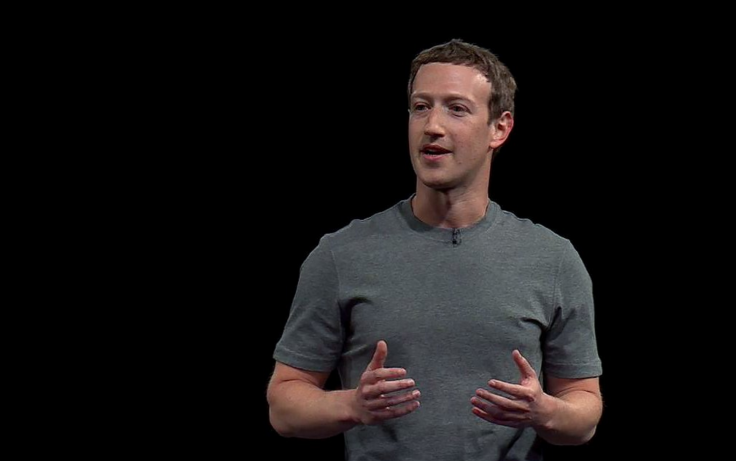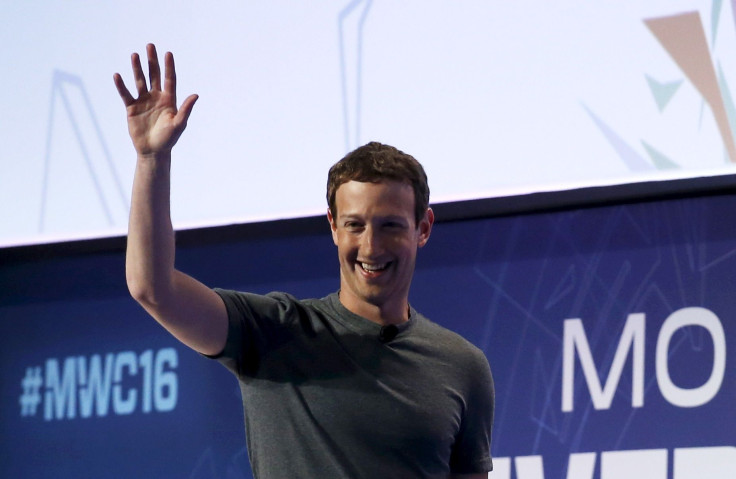Mark Zuckerberg: We Are Sympathetic With Apple And Tim Cook In Their Fight With FBI

BARCELONA, Spain — Mark Zuckerberg reiterated that he and Facebook stand fully behind Apple in its standoff against the FBI over a court order to crack the iPhone of one of the San Bernardino, California, terrorists.
During a keynote address Monday at Mobile World Congress, the Facebook founder made his position clear. “We are sympathetic with Apple. We believe in encryption. We believe that is an important tool,” Zuckerberg said, adding that those who want to use encryption will be able to access it anyway. “I just think it is not the right thing to unplug [encryption] from the mainstream products that people use.”
The Facebook CEO added: “I don’t think that requiring backdoors or banning encryption is either going to be an effective way to increase security or is really the right thing to do.”
However, he couched his comments by pointing out the ways Facebook already addresses the threat of terrorism. “We feel we have a pretty big responsibility running this big networking community to help prevent terrorism and different points of attack. We have very strong policies on this.” Zuckerberg outlined how Facebook removes anyone posting content promoting terrorism. “We do not want those type of people on Facebook.”
The battle between Apple and the FBI exploded last week when a judge ordered Apple to comply with an FBI request to "unlock" the iPhone used by Syed Rizwan Farook, one of the shooters in the San Bernardino terrorist attack. In the days since the issue exploded, both sides have dug in.

On one side, FBI Director James Comey argues that the bureau's request is “quite narrow” and that he doesn’t want to “break anyone’s encryption.” On the other side, Apple CEO Tim Cook on Monday in a letter to employees acknowledged that while the company has no sympathy for terrorists, it doesn’t want to set a “dangerous precedent that threatens everyone’s civil liberties” by creating a backdoor into the smartphone.
Facebook has already made its position clear, saying it would “fight aggressively” against government efforts to “weaken the security” of technology products. While Facebook and Google have been public in their support of Apple, other tech companies like Microsoft, Twitter and Yahoo have been less vocal, adding their support quietly through the Reform Government Surveillance group.
Zuckerberg also addressed another recent controversy when he said he was disappointed that India had banned Facebook's Free Basics service in the country due to net neutrality concerns. Zuckerberg revealed that Free Basics, which is available in 28 other countries, has helped get 19 million people access to its services in the last 18 months. Critics, however, say that those services are limited and risk creating a balkanized version of the internet controlled by the U.S. company.
Earlier this month Facebook’s Internet.org effort was hit with a stinging blow when the Telecom Regulatory Authority of India announced it would be forcing the Free Basics service to shut down when it took a stance in support of net neutrality standards by saying “no service provider shall offer or charge discriminatory tariffs for data services on the basis of content.”
While Zuckerberg may have brushed off the closure of Free Basics in India, the 19 million people using the service globally represents 1.2 percent of the company’s global monthly active users, a figure which grew by 46 million in the last quarter, indicating that it is not an insignificant number.
When asked what he has learned from the ban, Zuckerberg simply said: “Every country is different.” He added that Free Basics was just one part of Facebook’s wider Internet.org initiative, which includes tests this year of its solar-powered Aquila drone and satellites in Africa to deliver high-speed internet to people without access today.
Zuckerberg vowed to continue with Internet.org efforts in India even if Free Basics is banned. “Our real goal is really just to help people get on the internet,” Zuckerberg said, adding that people simply don’t believe him when he says Facebook’s goal is not simply to make money.
© Copyright IBTimes 2025. All rights reserved.




















